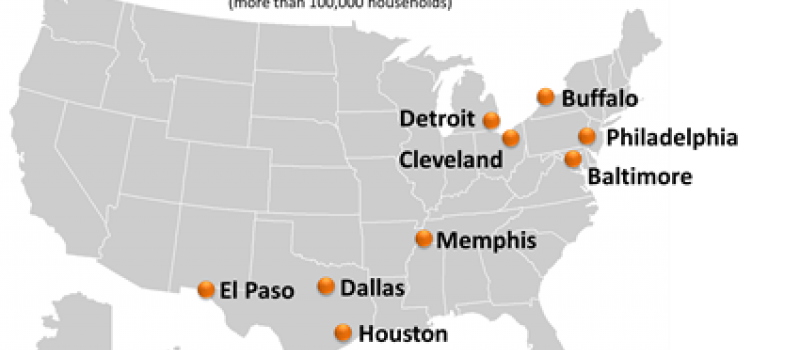Assessing Impact
posted by Collin Canright on December 19, 2016 - 2:12pm

As the year quickly comes to a close, news this week takes a step back to assess the impact of APIs on the financial sector, more emerging insurance trends, and FinTech’s impact on the underbanked and unbanked populations in the U.S. and abroad. We also learned that consumers are waking up to digital banking options, but contrary to the push towards digital everything, people still like cash and plastic cards over mobile wallets. Take a look at these insights and more in this week’s FinTech Rising round-up.
Top 5 Insurtech Trends for 2017
Big data will help insurance companies tailor policies based on consumer needs and expectations, new devices will be introduced to administer insurance services, and there will be more collaborations between InsurTech firms and traditional insurance agencies. These trends and more are broken down in The Financial Brand
U.S. consumers won’t change payment habits
Consumers know about digital payment options, but they aren’t going to switch over to digital payments until the digital options are safer and more seamless than good old debit and credit cards, writes Jim Marous for The Financial Brand. The 2016 North America Consumer Digital Survey, which gathered opinions from more than 4,000 smartphone users in the U.S. and Canada, found that consumers anticipate an increase of mobile wallets, but cash and plastic cards are perfectly fine for their basic needs.
The complex impact of FinTech and legacy systems on banking
While some say the legacy systems banks cling to are the biggest threat to banking, the lack of consensus in the FinTech sector is hindering further FinTech growth, according to Susan Visser’s piece for IBM Banking and Financial Markets Industries blog. From the legacy solutions that can’t meet future demands to resources spent maintaining those outdated systems, it’s clear that traditional banking has a lot of growing to do.
APIs: Delivering the connected ecosystem
The wave of APIs entering the financial services sector brings with it many questions. Who will own the customer relationship? What are the regulator challenges? And how do these third-party APIs create tools to improve customer relationships? The 2016 Capco whitepaper assesses the current state of APIs.
Dial M for Money: Can mobile banking lift people out of poverty?
After using M-PESA, a banking service operated through mobile phones, women-led families with access to a large number of agents set aside 22 percent more in savings between 2008 and 2014. And they bought 18.5 percent more basic goods. This NPR report examines how mobile banking in Kenya helped improve finance management for some of the nation’s poorest citizens.
Is Fintech Small Banks' Equalizer in Fight with Big Rivals?
Small banks aren’t likely to bankroll pricey innovation incubators like their larger competitors, but they are more nimble and willing to partner with FinTech firms and develop rival products for their customers, giving them a competitive advantage over large banks, writes Bryan Yurcan for American Banker.
Taking a chance on the unbanked
A FDIC annual survey on the underbanked and unbanked found that 7 percent of Americans didn’t have access to banking services in 2015. While banks look at this market as merely risky business, FinTech firms see an opportunity to target users outside of their typical demographic. The use of FinTech products, Chris Tremont asserts in his Finxtech post, could provide more options for individuals who have otherwise been overlooked.
THE BLOCKCHAIN WATCH
Blockchain is dead, long live the blockchain
Despite the discussions surrounding blockchain’s demise, it’s too early to rule out the potential for blockchain adoption, writes Chris Skinner for The Finanser blog. “We saw this with the internet (a boom and bust and boom); mobile (it’s only for yuppies but now I can’t live without one); and the PC (who needs a computer in the home?). We’ll see this with blockchain and, like those previous technologies, it will fulfill the Bill Gates quote of overestimating the speed and underestimating the impact this technology will have.”
Making the bitcoin blockchain more like Ethereum 2.0
The RSK Federation, a group of more than 25 major companies operating in bitcoin, is leading the charge to make bitcoin able to support decentralized applications like Ethereum currently does. The group officially launched in August, and its primary goal is to build a smart-contract layer on top of bitcoin to support more applications, according to Bitcoin XYZ.
A16z, USV Invest $10 million in blockchain token trading firm
Andreessen Horowitz, Boost VC, Union Square Ventures and other undisclosed backers are using alternative assets like bitcoin to invest, according to Coindesk. Carlson-Wee explained, “I think these tokens are very important. They directly monetize the open-source founders and founding teams at a protocol level. We’ve already seen many founders of blockchain networks get rich based on their creation.”

